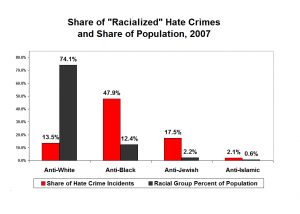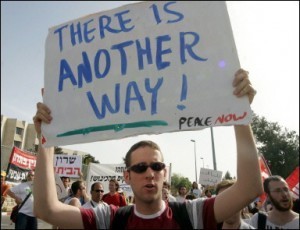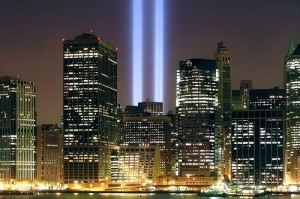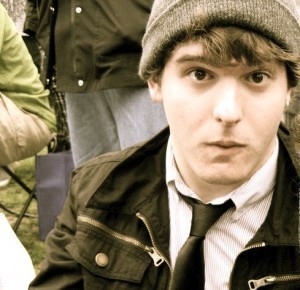Changing My Mind
With the new year, I was thinking about how much my views on a whole bunch of things have changed just in the last few months, and it occurred to me: I’ve probably said a bunch of wrong stuff out loud and even louder on the internet in my time blogging (like bloggers are prone to do).
So rather than just shrug and hope people who’ve read stuff of mine in the past keep up with me in the here/now and are familiar with my personal intellectual evolution (you love me that much right right), I just wanted to quickly compile and critique few things I’ve found from my past that I really just don’t agree with anymore. If only to help me sleep at night.
So here we go, following the Ghost of Wrongness Past:
 “Atheism may, in fact, be the most stigmatized minority group in America” – Peers, Parents, and Popularity || The New Humanism
“Atheism may, in fact, be the most stigmatized minority group in America” – Peers, Parents, and Popularity || The New Humanism
In which I buy into a prevailing misconception. Barring the already ambiguous (and not clarified) use of the word “stigmatized”—in what way? Civil rights? Recipients of violence? Ability to hold office?—this notion that to identify as an atheist is equally and universally as socially repulsive now as it was decades or centuries ago just needs to be excised, in the interest of nuance and honesty. I’m white and cisgender male-identified, I’m fairly financially secure, and I live in Boston. There are places where I’m underprivileged, but particularly in my community, my atheism is in no way “stigmatized”. Of course: there are other classes, other geographies, other communities in America where it is abhorred (naturally, I cited Jessica Ahlquist’s plight in the article, and even in my North Carolina hometown I felt compelled to hide it most of the time)—but, and I’ll gleefully play the Oppression Olympics here, this is in no way even comparable to (like one commenter on the article notes) that of those in the trans community, who are routinely disserviced by our repugnantly binary-normalized society, who are the subjects of extraordinary violence, who have no choice but to do everything they can to hide who they are in most communities in America. I mentioned earlier that my class plays heavily into this characterization—sure, if I was in a low income, urbanized neighborhood, where maybe the local church is central to community organization, being an open and out atheist could easily contribute to the existing oppressive forces from the government and from the surrounding poverty-borne tension. But that’s not because “atheism may be the most stigmatized minority group in America”, it’s because oppression is naturally going to magnify exponentially as you start adding minority characteristics to your identity. Vlad wrote a great piece a while back criticizing the common trope of how “distrusted” atheists are. I don’t think we should discredit the underprivilege of many Western atheists (and certainly not of atheists in less developed countries, just remember no further than Alexander Aan in Indonesia), but that we shouldn’t let our dedication to our own plight blind us from the oppression of others. That’s how a progressive can inhibit progress.
 “The use of Islamic promises of paradise, in addition to anti-Israeli propaganda, to drive young Palestinian middle-class to suicide bombing is, to me, just as much an affront to human dignity as the Apartheid-esque segregation and misemployment of the citizens of the West Bank by Israeli officials.” – Israel and the Arab World, Part 3 || NonProphet Status
“The use of Islamic promises of paradise, in addition to anti-Israeli propaganda, to drive young Palestinian middle-class to suicide bombing is, to me, just as much an affront to human dignity as the Apartheid-esque segregation and misemployment of the citizens of the West Bank by Israeli officials.” – Israel and the Arab World, Part 3 || NonProphet Status
This isn’t as strong a statement as I think it comes off, I think my intention was more to be nuanced in my assessment of the issue, I made the tiresome mistake that CNN makes all the time: of thinking “balanced and objective” means suggesting both sides are equals. It is true that the charter of Hamas has a number of propagandic, prejudiced statements, suggesting for instance that Jews “control the mass media”. It’s also true that they’re guilty of training schoolchildren in bomb tactics, under the guise of education. But I think, now, that this is all very beside the more relevant point that this repugnantly extremist behavior is a natural consequence of the tremendous divide, in wealth and power, between Israel and the Palestinian territories. And frankly, looking at the issue from any other dimension, you’d be hard pressed to find a way in which Israel’s transgressions don’t vastly outdo those of the Arabs: the IDF’s arsenal includes the “most powerful military technology in the region”; Israel’s lobbying power in the most powerful government in the world gives it tremendous propogandic influence; and even sources sympathetic to Israel cite the number of Palestinian casualties as four times greater than those in Israel. Racism is not justified, but when it’s coming from two sides, particularly sides of a class divide as stark as that in Jerusalem, we are obligated to side with those oppressed, albeit giving honesty to their own shortcomings and horrific practices. But never should we say that they are of the same “affront to human dignity” when one towers above the other.
 “I don’t think he ever engaged in what I would call, ‘bullying’.” – Hitched || NonProphet Status
“I don’t think he ever engaged in what I would call, ‘bullying’.” – Hitched || NonProphet Status
Maybe my definition of “bullying” has changed, but more than likely, my changed interpretation of Hitchens has led me to question whether he deserves this much credit. He’s certainly still one of primary influence to my interest in journalism, activism, and polemics–but, like I mentioned in the last graph, I don’t want to present him as unflawed, or apologize for some of his truly problematic views and statements on wars overseas, women, and, naturally, religion. I don’t any longer think there’s a valid distinction to be made between desecrating and dehumanizing a certain religion as a monolith and doing so to its individual members–any more than there is in the tired “love the sinner, hate the sin” nonsense. So I’m truly uncomfortable and offended that Hitch was known to offer up stuff like “[cluster bombs] are pretty good because those steel pellets will go straight through somebody and out the other side and through somebody else. And if they’re bearing a Koran over their heart, it’ll go straight through that, too.” Or, when he outright tried to discredit the term “islamophobia”, calling it a “stupid neologism” and denying its interconnection with racism. That was, on it’s face, bullying, of an oppressed class no less. His notorious “Why Women Aren’t Funny” is laughably broad-stroking and based in a entirely anachronistic, 1940′s-Mad -Men causal sexism. While I think his support for the Iraq War came from a place of compassion for the Arabs, and especially Kurds, massacred under Sadam Hussein, I also think “Kill Sadam, save the world” is an overtly militaristic and unstrategic policy prescription that ultimately did far more harm to both sides than good. But I’ll still defend Hitch’s historic activism, particularly in response to Vietnam and in support of civil rights, his passion for journalistic integrity, and his eloquence and verbosity. And I definitely recommend reading (or checking the audiobook) his memoir Hitch-22, which helps give a much more nuanced picture of his life and times in his own words.
 “The actions that transcribed on September 11th, 2001 were undoubtedly religious motivated.” – 9/11 || NonProphet Status
“The actions that transcribed on September 11th, 2001 were undoubtedly religious motivated.” – 9/11 || NonProphet Status
In context, I did proceed after this to explain that “religious motivations” aren’t formed “in a vacuum”, and how silly it would be to draw a perfect causal relationship between any form of Islam and immense terroristic violence. But if I were writing this same article today (or last September), I don’t think I’d mention the religious aspect at all. That definitely seems weird—9/11 inspired many of the big atheist authors to get writing on the topic of religion, thus springing atheism into the mainstream. But in honesty, has much good come from us, behind our privileged American computers, pointing out the passages in the Quran that may have inspired mass violence? Doing so, and trying to paint Islam as “barbaric” or inherently violent, has certainly contributed to a culture of Islamophobic oppression, and linked not only American Muslims to a horrific crime that had no part whatsoever in, but really anyone who at all fits the “Muslim terrorist” stereotype–Steve just recently published a compelling piece on this very point. So while religion was a part of the myriad motivations for the 9/11 attacks, it seems like there are far better ways for us to talk about the issue–in terms of poverty, of authoritarianism, perhaps very specifically of dogmatism–than simply “religion caused this”. “Imagining a world with no religion” does not necessarily lead to the twin towers remaining standing. But imagining a world where we don’t broad-stroke a link between particular identities and mass violence certainly seems to lead to a more harmonious society.
Anyway, these are just a few places where I wanted to reflect on how my way of thinking’s changed. Honesty and openness are an important jigsaws in critical thinking, and if we’re to best confront the problems of our world, we have to be willing to realign ourselves as we learn more about the world. We have to fight the tribalism that arises from a comfortable perception of superiority. And we have to be brutally self-reflective.
Can’t wait to see how I’m thinking differently next year.

Walker Bristol woke up this morning and realized, to his dismay, that he is the President of the Tufts Freethought Society and the Director of Communications for Foundation Beyond Belief . This is especially peculiar considering he grew up as a high school wrestler-pianist in North Carolina and intended to become Luke Skywalker for an undisclosed period of his life, eventually settling for a Star Wars tattoo. The Tufts Political Science and Religion departments suffer his enrollment. He writes about social activism and art in the Tufts Daily . His diet consists of hummus. He tweets nonsense on all these fronts @WalkerBristol .



